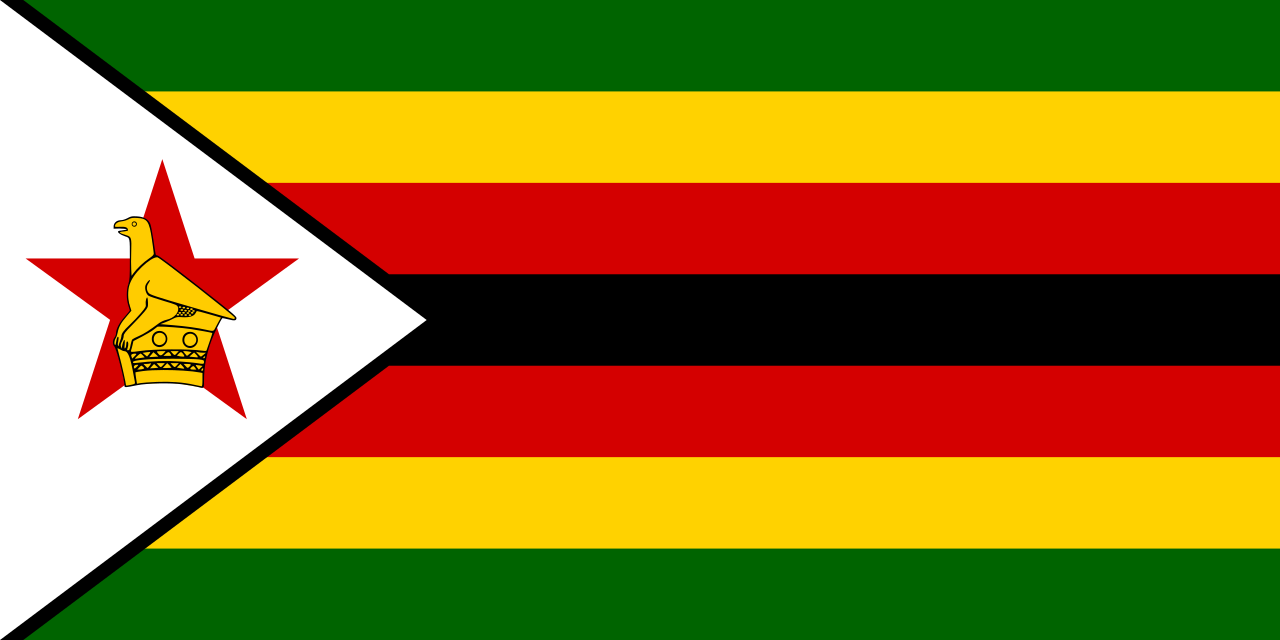The UK annexed Southern Rhodesia from the former British South Africa Company in 1923. A 1961 constitution was formulated that favored whites in power. In 1965 the government unilaterally declared its independence, but the UK did not recognize the act and demanded more complete voting rights for the black African majority in the country (then called Rhodesia). UN sanctions and a guerrilla uprising finally led to free elections in 1979 and independence (as Zimbabwe) in 1980. Robert MUGABE, the nation's first prime minister, has been the country's only ruler (as president since 1987) and has dominated the country's political system since independence. His chaotic land redistribution campaign, which began in 1997 and intensified after 2000, caused an exodus of white farmers, crippled the economy, and ushered in widespread shortages of basic commodities. Ignoring international condemnation, MUGABE rigged the 2002 presidential election to ensure his reelection.
In April 2005, the capital city of Harare embarked on Operation Restore Order, ostensibly an urban rationalization program, which resulted in the destruction of the homes or businesses of 700,000 mostly poor supporters of the opposition. MUGABE in June 2007 instituted price controls on all basic commodities causing panic buying and leaving store shelves empty for months. General elections held in March 2008 contained irregularities but still amounted to a censure of the ZANU-PF-led government with the opposition winning a majority of seats in parliament. Movement for Democratic Change - Tsvangirai opposition leader Morgan TSVANGIRAI won the most votes in the presidential poll, but not enough to win outright. In the lead up to a run-off election in June 2008, considerable violence against opposition party members led to the withdrawal of TSVANGIRAI from the ballot. Extensive evidence of violence and intimidation resulted in international condemnation of the process. Difficult negotiations over a power-sharing "government of national unity," in which MUGABE remained president and TSVANGIRAI became prime minister, were finally settled in February 2009, although the leaders failed to agree upon many key outstanding governmental issues. MUGABE was reelected president in June 2013 in balloting that was severely flawed and internationally condemned. As a prerequisite to holding the election, Zimbabwe enacted a new constitution by referendum, although many provisions in the new constitution have yet to be codified in law.
Zimbabwe is semi-presidential republic.
Source: CIA World Factbook
Members:
Resources
Displaying 56 - 59 of 59Prescription Act [Chapter 8:11].
This Act shall not apply to rights and obligations governed by customary law of any person other than the State. This Act shall bind the State (sect. 3). Subject to provisions of Part II and Part V, a person shall by prescription become the owner of a thing which he has possessed openly and as if he were the owner thereof for: (a) an uninterrupted period of thirty years; or (b) a period which, together with any periods for which such thing was so possessed by his predecessors in title, constitutes an uninterrupted period of thirty years.
Alienated Land (Information) Act [Chapter 20:02].
This Act concerns control on the use of alienated land. Whenever the President considers it necessary or expedient to do so, he or she may make Regulations for the purpose of ascertaining the nature and extent of the occupation or use of alienated land (sect. 2). The Regulations may, among other things, require owners or occupiers of alienated land to supply specified information and prescribe powers and duties of officers appointed under section 4. Such officers may be appointed by the Minister for the purpose the nature and extend of occupation and use of alienated land.
Settled Estates Leasing Act.
This Act concerns the lease of settled estates. "Settled estate" is defined in section 2 as "all immovable property and all estates or interests in any such immovable property, which are subject of any settlement". "Settlement" is defined as "any deed, agreement, will or other instrument under or by virtue of which any immovable property or any estate or any interest in any such immovable property stands limited to or in trust for any person or persons by way of succession or for a life or lives, or for a term of years determinable with the death of any person".
Titles Registration and. Derelict Lands Act [Chapter 20:20].
Persons having acquired a just and lawful right of title in derelict lands, either by prescription or by contract or in any other manner, may apply to the High Court to order the registration of such title (sect. 3). Section 4 provides for the application for the registration of land by persons entitled to "expropriate" such land. Section 5 provides for the application to the high Court for relief by persons having a claim on derelict land.


